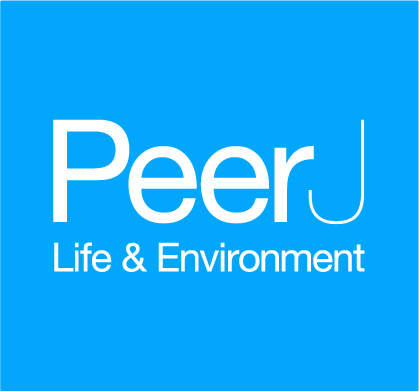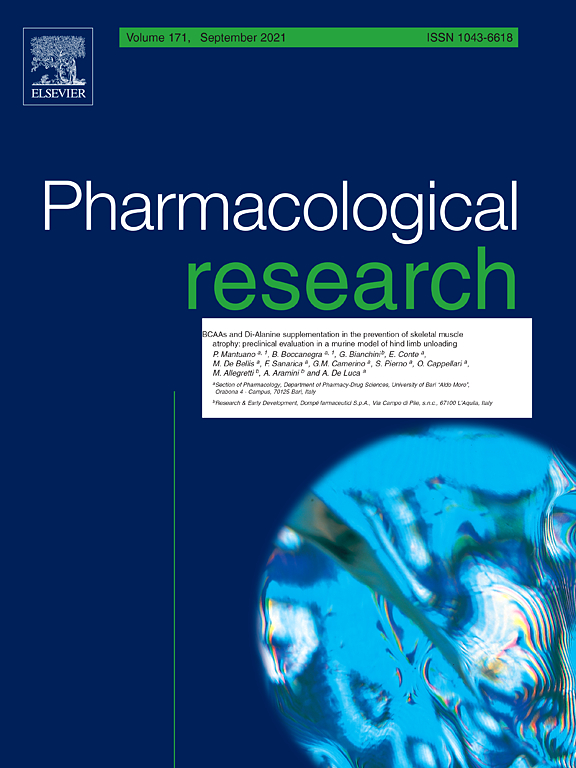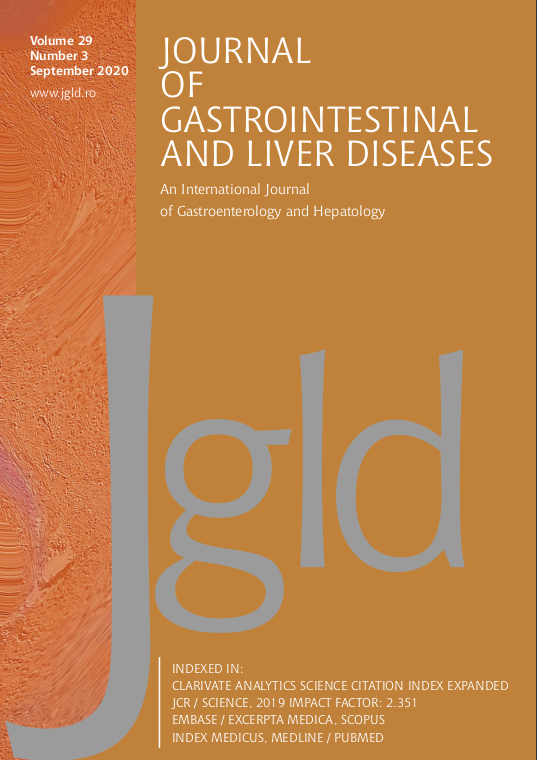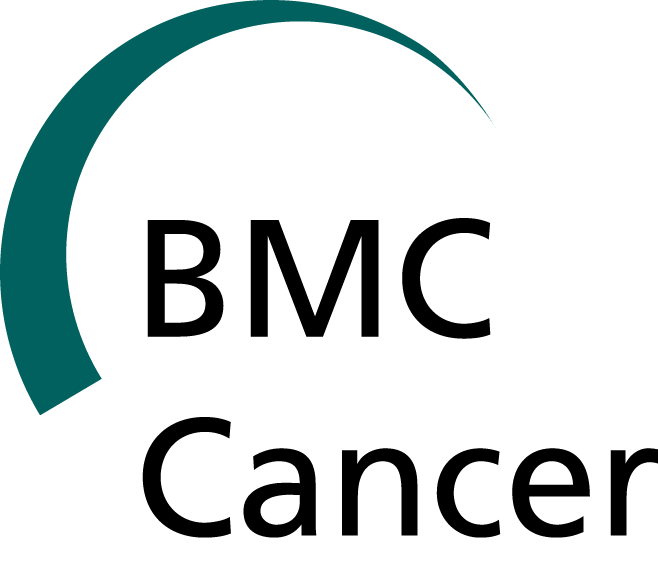Liver Cancer
How to submit an article:
- Registered users can submit any published journal article that has a unique DOI (Digital Object Identifier) name or link to Research Hub.
- For example, you can paste the full DOI link:
https://doi.org/10.1109/5.771073or just the DOI name:10.1109/5.771073into the field above and click submit. - The person who is first to submit a valid article to Research Hub will forever be credited for it, and every article submission earns you +6 Research Points.
Also known as: Hepatocellular Carcinoma
Related Topics
Published research studies are articles that present the findings of original research that has undergone a peer-review process and has been made publicly available in scholarly journals, books or other media.

Advances on the anti-tumor mechanisms of the carotenoid Crocin
2023 Jun 29 PeerJ Bao X, Hu J, Zhao Y, Jia R, Zhang H, Xia L
Review Article Crocin Liver Cancer Saffron Breast Cancer Stomach Cancer Colorectal Cancer Cervical Cancer Anti-TumourCrocin, a compound derived from saffron, has shown considerable potential in hindering tumor growth and improving immune status, across various malignant tumors.

The Extraction and High Antiproliferative Effect of Anthocyanin from Gardenblue Blueberry
2023 Mar 22 Molecules Zhao F, Wang J, Wang W, Lyu L, Wu W, Li W
Experimental Study BlueberryThe anthocyanins from the Gardenblue variety of blueberries exhibit strong antiproliferative effects on various cancer cells, especially liver cancer cells.

Baicalin and the liver-gut system: Pharmacological bases explaining its therapeutic effects
2021 Mar Pharmacological Research Hu Q, Zhang W, Wu Z, Tian X, Xiang J, Li L, et al.
Review Article Ulcerative Colitis NAFLD Liver Cancer Baicalein Short-Chain Fatty Acids CholestasisBaicalin, a Scutellaria baicalensis extract, has been found to have numerous therapeutic applications in liver and gut diseases by mediating apoptosis and immune response pathways.

Inverse Association of Coffee with Liver Cancer Development: An Updated Systematic Review and Meta-analysis
2020 Aug 19 Journal of Gastrointestinal and Liver Diseases Bhurwal A, Ratta P, Yoshitake S, Pioppo L, Reja D, Dellatore P, et al.
Systematic Review Meta-Analysis Liver Cancer CoffeeHigher consumption of coffee correlates with a significant decrease in the risk of liver cancer or hepatocellular carcinoma.

Coffee drinking and cancer risk: an umbrella review of meta-analyses of observational studies
2020 Feb 05 BMC Cancer Zhao LG, Li ZY, Feng GS, Ji XW, Tan YT, Li HL, et al.
Meta-Analysis Coffee Liver Cancer Endometrial Cancer Cancer RiskCoffee consumption shows a strong association with decreased risk of liver and endometrial cancer.
Research insights are moderated by the Research Hub team and offer an at-a-glance overview of interesting research findings.

2023 PeerJ
Crocin, a compound derived from saffron, has shown considerable potential in hindering tumor growth and improving immune status, across various malignant tumors.
Review Article Anti-Tumour Breast Cancer Cervical Cancer Colorectal Cancer Crocin
Advances on the anti-tumor mechanisms of the carotenoid Crocin
Bao X, Hu J, Zhao Y, Jia R, Zhang H, Xia L

2023 Molecules
The anthocyanins from the Gardenblue variety of blueberries exhibit strong antiproliferative effects on various cancer cells, especially liver cancer cells.
Experimental Study Blueberry
The Extraction and High Antiproliferative Effect of Anthocyanin from Gardenblue Blueberry
Zhao F, Wang J, Wang W, Lyu L, Wu W, Li W

2021 Pharmacological Research
Baicalin, a Scutellaria baicalensis extract, has been found to have numerous therapeutic applications in liver and gut diseases by mediating apoptosis and immune response pathways.
Review Article Baicalein Cholestasis NAFLD Short-Chain Fatty Acids Ulcerative Colitis
Baicalin and the liver-gut system: Pharmacological bases explaining its therapeutic effects
Hu Q, Zhang W, Wu Z, Tian X, Xiang J, Li L, et al.

2020 Journal of Gastrointestinal and Liver Diseases
Higher consumption of coffee correlates with a significant decrease in the risk of liver cancer or hepatocellular carcinoma.
Systematic Review Coffee
Inverse Association of Coffee with Liver Cancer Development: An Updated Systematic Review and Meta-analysis
Bhurwal A, Ratta P, Yoshitake S, Pioppo L, Reja D, Dellatore P, et al.

2020 BMC Cancer
Coffee consumption shows a strong association with decreased risk of liver and endometrial cancer.
Meta-Analysis Cancer Risk Coffee Endometrial Cancer
Coffee drinking and cancer risk: an umbrella review of meta-analyses of observational studies
Zhao LG, Li ZY, Feng GS, Ji XW, Tan YT, Li HL, et al.
Review Articles
Review articles summarise and critically evaluate the current state of research on a specific topic or field by synthesising multiple primary research studies.

Advances on the anti-tumor mechanisms of the carotenoid Crocin
2023 Jun 29 PeerJ Bao X, Hu J, Zhao Y, Jia R, Zhang H, Xia L
Review Article Crocin Liver Cancer Saffron Breast Cancer Stomach Cancer Colorectal Cancer Cervical Cancer Anti-TumourCrocin, a compound derived from saffron, has shown considerable potential in hindering tumor growth and improving immune status, across various malignant tumors.

Baicalin and the liver-gut system: Pharmacological bases explaining its therapeutic effects
2021 Mar Pharmacological Research Hu Q, Zhang W, Wu Z, Tian X, Xiang J, Li L, et al.
Review Article Ulcerative Colitis NAFLD Liver Cancer Baicalein Short-Chain Fatty Acids CholestasisBaicalin, a Scutellaria baicalensis extract, has been found to have numerous therapeutic applications in liver and gut diseases by mediating apoptosis and immune response pathways.

Inverse Association of Coffee with Liver Cancer Development: An Updated Systematic Review and Meta-analysis
2020 Aug 19 Journal of Gastrointestinal and Liver Diseases Bhurwal A, Ratta P, Yoshitake S, Pioppo L, Reja D, Dellatore P, et al.
Systematic Review Meta-Analysis Liver Cancer CoffeeHigher consumption of coffee correlates with a significant decrease in the risk of liver cancer or hepatocellular carcinoma.
Clinical Trials
Clinical trials are research studies that involve people and are conducted to evaluate the safety and efficacy of new treatments or interventions, such as drugs, medical devices, or behavioural therapies.
Study Protocols
Published study protocols are detailed plans that outline the objectives, methodology, statistical analyses, and organisation of a research study that have been made publicly available for others to review and use as a reference.

Efficacy and safety of acupuncture combined with Chinese herbal medicine in the treatment of primary liver cancer
2021 Oct 08 Medicine Dong S, Zhuang X, Yangyang L, Yan L, Houbo D, Song W, et al.
This study will provide evidence-based medical evidence for the treatment of PLC with a combination of acupuncture and Chinese herbal medicine, and provide new ideas and methods for the treatment of PLC.
Study Protocol Acupuncture Liver Cancer Chinese Herbal Medicine
Efficacy and safety of acupuncture and moxibustion combined with the external application of traditional Chinese medicine in the treatment of primary liver cancer
2021 Oct 29 Medicine Wang S, Xiong Z, Liu Y, Leng Y, Deng H, Shen D, et al.
This study will provide evidence-based guidance for the treatment of PLC with acupuncture and the external application of traditional Chinese medicine and offers new ideas and methods for the treatment of PLC.
Study Protocol Liver Cancer MoxibustionPresentation Slides

Review Article
Crocin, a compound derived from saffron, has shown considerable potential in hindering tumor growth and improving immune status, across various malignant tumors.
Bao X, Hu J, Zhao Y, Jia R, Zhang H, Xia L

Experimental Study
The anthocyanins from the Gardenblue variety of blueberries exhibit strong antiproliferative effects on various cancer cells, especially liver cancer cells.
Zhao F, Wang J, Wang W, Lyu L, Wu W, Li W

Review Article
Baicalin, a Scutellaria baicalensis extract, has been found to have numerous therapeutic applications in liver and gut diseases by mediating apoptosis and immune response pathways.
Hu Q, Zhang W, Wu Z, Tian X, Xiang J, Li L, Li Z, Peng X, Wei S, Ma X, Zhao Y

Systematic Review
Higher consumption of coffee correlates with a significant decrease in the risk of liver cancer or hepatocellular carcinoma.
Bhurwal A, Ratta P, Yoshitake S, Pioppo L, Reja D, Dellatore P, Rustgi V

Meta-Analysis
Coffee consumption shows a strong association with decreased risk of liver and endometrial cancer.
Zhao LG, Li ZY, Feng GS, Ji XW, Tan YT, Li HL, Gunter MJ, Xiang YB
Executive Summary
Write an executive summary in the form of a blog article on the topic of "Research into Chinese medicine treatment for Liver Cancer" summarising the research below and using language that can be easily understood by patients and avoiding medical jargon using a professional and caring tone of voice.
Write an executive summary in the form of a blog article on the topic of "Researched Chinese medicine treatments for Liver Cancer" summarising the research below in an objective and easy to understand way, and using language that can be easily understood by patients. Group the article into Chinese medicine treatments first, followed by nutrition and other treatments. Avoid using medical jargon and use a professional and caring tone of voice.
Write me a concise but easy to understand executive summary on the topic of "Chinese medicine treatments for Liver Cancer" based on the following research that I will give you. Your summary should be 2 paragraphs long in Australian English spelling and include references to the studies.
A Review Article published in 2023 in the journal PeerJ found that Crocin, a compound derived from saffron, has shown considerable potential in hindering tumor growth and improving immune status, across various malignant tumors. The methodology for the study involved an in-depth review of modern pharmacological studies that have analyzed the therapeutic effects of crocin, a natural compound that can be extracted from saffron. Various anti-tumor effects were assessed including the induction of tumor cell death (apoptosis), restrictions on tumor cell proliferation, and potential barriers to invasion and metastasis of these cells. The potential for enhancement of sensitivity to chemotherapy and improvement of immune status were also examined. Following the review, the study revealed that crocin has significant anti-tumor properties. It showed that this natural compound can induce apoptosis in tumor cells, inhibit their expansion and progression, and even prevent their invasiveness and metastasis. Furthermore, crocin demonstrated the potential to enhance the body’s responsiveness to chemotherapy and help boost the immune system. These effects were observed across a range of different malignant tumors, including stomach, liver, cervical, breast, and colorectal cancers.
A Experimental Study published in 2023 in the journal Molecules found that The anthocyanins from the Gardenblue variety of blueberries exhibit strong antiproliferative effects on various cancer cells, especially liver cancer cells. 65 varieties of blueberries were collected, focusing on their nutritional and functional values. Among these, the Gardenblue variety showed the highest anthocyanin content in fresh fruit. This content was further increased through the process of ultrasound-assisted solvent extraction and macroporous resin absorption, transforming it into a dried powder. Biological experiments were then conducted to determine the antiproliferative effects of Gardenblue anthocyanins on various cancer cell strains, such as cervical, liver, breast, and lung cells. Furthermore, these anthocyanins were combined with the chemotherapy drugs, cisplatin and doxorubicin, to assess any potential enhanced antiproliferative effects. The research results confirmed that Gardenblue anthocyanins exert a substantial antiproliferative effect on multiple cancer cell types, particularly hepatoma or liver cancer cells. These anthocyanins displayed no evident toxic effects, as measured by the MTT assay, a laboratory colorimetric technique. Notably, the antiproliferative benefits were amplified when the anthocyanins were combined with doxorubicin, a treatment for liver cancer. Analysis suggests that the anthocyanins might induce cell apoptosis (cell death) by bonding with DNA in a manner that modifies or damages the DNA, thus preventing cell proliferation. This suggests potential application of Gardenblue anthocyanin extract as a functional agent against liver cancer cells.
A Review Article published in 2021 in the journal Pharmacological Research found that Baicalin, a Scutellaria baicalensis extract, has been found to have numerous therapeutic applications in liver and gut diseases by mediating apoptosis and immune response pathways. High-throughput screening and bioinformatics technology were utilized in the extraction and study of baicalin from the dried root of Scutellaria baicalensis Georgi, an herb traditionally used in Chinese medicine. The research sought to understand the biological action of baicalin, particularly how it affects diseases related to the liver and gut. The effects were associated mainly with downstream apoptosis and immune response pathways, which are induced by upstream oxidative stress and inflammation. In the discussion of the resultant findings, it was identified that baicalin engages various key factors during oxidative stress regulation. These include PI3K/Akt/NRF2, Keap-1, NF-κB, and HO-1, contributing to the healing effects of baicalin on non-alcoholic fatty liver disease/non-alcoholic steatohepatitis, ulcerative colitis, and cholestasis. Further, it was discovered that baicalin plays a therapeutic role in regulating inflammatory response and apoptosis pathways. This ability aids in the alleviation of liver diseases and suppression of hepatocellular carcinoma. Baicalin was also found to regulate the intestinal flora by promoting the production of short-chain fatty acids, shedding new light on the full range of baicalin's pharmacological effects.
A Systematic Review published in 2020 in the journal Journal of Gastrointestinal and Liver Diseases found that Higher consumption of coffee correlates with a significant decrease in the risk of liver cancer or hepatocellular carcinoma. In the methodology, a systematic review and meta-analysis was performed on original articles, published in English from 1996 to June 2019, that linked coffee consumption with liver cancer or hepatocellular carcinoma. Numerous databases, including PubMed/MEDLINE/EMBASE/Ovid/Google Scholar, were searched for relevant case-control, cohort or prospective studies. The Relative Risk (RR) for these conditions was calculated for coffee drinking, further stratified by the increments of one cup of coffee per day. The final analysis involved 20 studies, analysed using random effects models, with heterogeneity between studies calculated by Cochrane Q and the I2 statistics. The results indicated that the overall Relative Risk (RR) displayed significant heterogeneity among the studies. A subgroup analysis was performed to evaluate the impact of additional coffee intake, and it was discerned that higher coffee consumption was associated with a substantial drop in the risk of developing hepatocellular carcinoma(HCC) or liver cancer. Additionally, there was no indication of significant publication bias observed in the funnel plot.
A Meta-Analysis published in 2020 in the journal BMC Cancer found that Coffee consumption shows a strong association with decreased risk of liver and endometrial cancer. The randomized umbrella review included a total of 28 individual meta-analyses and 36 summary associations for 26 different types of cancer. In order to collect this data, a variety of databases like PubMed, Embase, Web of Science and the Cochrane database were searched to find systematic reviews and meta-analyses of relationships between coffee consumption and cancer incidence. The summary effect size was estimated for each association using both the fixed and random effects model. A detailed evaluation of heterogeneity, small-study effects, and excess significance bias was also carried out. The results showed 17 out of 28 meta-analyses to be significant. For the highest versus the lowest categories, 4 out of 26 associations showed a more stringent value. There were notable dose-response associations for five types of cancer. Majority of the studies (69%) displayed low heterogeneity. There was evidence of excessive significance bias and publication bias in three and six associations respectively. Data exhibited that coffee intake was inversely proportional to the risk of contracting liver and endometrial cancer. All this remained constant even when the analysis was restricted only to the meta-analysis of cohort studies.
Moderation Tools
Topic
Sign In
Users not signed in are limited to viewing the 5 most recent items of content.